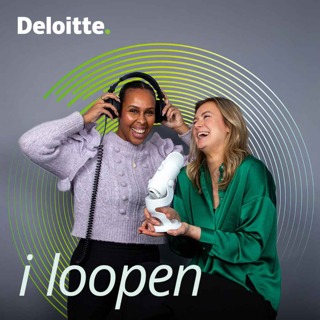
The Rise of Bitcoin Banks with Nicolas Burtey | SLP634
Stephan and Nicolas discuss the evolution of Bitcoin banking, the role of Galoy, and the impact of regulatory changes on the Bitcoin ecosystem. They explore the differences between Bitcoin and fiat banking, the potential for local and global Bitcoin banks, and the future of Bitcoin custody and lending. The discussion also touches on the challenges posed by regulations and how recent changes may open up opportunities for banks to offer Bitcoin services. Nicolas also discusses Lana - a platform designed for banks and financial institutions to offer Bitcoin-backed loans. He explains the complexities of managing collateral and risk in Bitcoin lending, the importance of proof of reserves, and the role of custodians in the banking process. Takeaways🔸Bitcoin banking can differ significantly from fiat banking.🔸The Lightning Network has evolved towards a more centralized model.🔸Bitcoin banks can operate without needing permission, unlike fiat banks.🔸There is potential for a million Bitcoin banks globally.🔸Regulatory challenges impact the adoption of Bitcoin by banks.🔸Recent regulatory changes may encourage banks to offer Bitcoin services.🔸Custody of Bitcoin is becoming a key focus for banks.🔸Local Bitcoin banks may have advantages over global ones.🔸The repeal of SAB121 is a significant step for Bitcoin banking.🔸Bitcoin collateralized lending is an emerging opportunity. Lana is a landing platform for Bitcoin-backed loans.🔸Managing collateral risk is crucial in Bitcoin lending.🔸Proof of reserves should be a standard practice for Bitcoin banks.🔸Banks can choose their custodians for Bitcoin management.🔸Lana aims to expedite the market entry for banks.🔸Traditional banking software may struggle with Bitcoin integration.🔸Galoy is developing various Bitcoin banking products.🔸The regulatory environment is influencing banks' Bitcoin strategies.🔸El Salvador's legal tender law for Bitcoin has been repealed.🔸Bitcoin adoption in El Salvador has led to increased tourism.Timestamps:(00:00) - Intro(01:08) - How did Galoy start?(04:24) - LN and Bitcoin wallet evolution over time(08:12) - Bitcoin banking vs. Fiat banking(12:15) - Local vs. Global Bitcoin banking models(17:09) - Sponsors(18:42) - What is the future of Bitcoin custody and lending?(22:14) - Why are traditional banks hostile towards Bitcoin?(28:15) - How does repealing SAB121 help Bitcoin?(30:19) - What is Lana?(34:54) - The importance of Proof-of-Reserves in Bitcoin lending products(40:57) - How market-ready is Lana?(42:08) - Sponsors(43:07) - How is Lana different from Traditional banking software?(45:08) - Building Galoy: Bitcoin’s banking infrastructure(48:12) - What is the future of Bitcoin in traditional banking?(50:08) - Insight on the repeal of El Salvador’s Bitcoin legal tender law(55:05) - What is the impact of Bitcoin on El Salvador’s economy?Links: https://x.com/nicolasburtey https://x.com/galoymoneyhttps://x.com/GaloyMoney/status/1887496202591052194 https://www.galoy.io/lana-bitcoin-loans-platform Sponsors:Bold BitcoinCoinKite.com (code LIVERA)Stephan Livera links:Follow me on X: @stephanliveraSubscribe to the podcastSubscribe to Substack
10 Feb 59min

Bitcoin for Companies: Risks, Rewards & Real Use Cases with Mason Carter | SLP633
Mason Carter, co-founder of Acropolis, chats about the adoption of Bitcoin in corporate treasury management. Stephan & Mason discuss the challenges faced by businesses in managing their treasury, the role of Bitcoin as a potential solution, and the importance of custody and regulatory considerations. Mason also shares insights on how companies can get started with Bitcoin, the impact of recent accounting changes, and the future of Bitcoin in banking. They then conclude the conversation with a case study involving eBay and the broader market potential of Bitcoin as a store of value. Takeaways 🔸Bitcoin can help businesses combat inflation and preserve purchasing power. 🔸Not every company should adopt a Bitcoin treasury strategy. 🔸Custody of Bitcoin is a critical concern for corporations. 🔸FASB changes have made it easier for companies to account for Bitcoin. 🔸The future of banking will likely involve specialized Bitcoin services. 🔸20% allocation to Bitcoin is a reasonable starting point for corporations. 🔸Bitcoin is a more efficient store of value compared to traditional assets. 🔸The legitimacy of Bitcoin is increasing among traditional finance leaders. 🔸Education is key for businesses to understand Bitcoin's value. 🔸Counterparty risk is a primary concern for corporate treasurers. Timestamps: (00:00) - Intro (00:48) - What are Early Riders & Acropolis? (02:25) - What are the challenges faced by corporations in treasury management? (04:35) - Should every company with access to public markets adopt Bitcoin acquiring strategies? (06:58) - Getting started with Bitcoin for Corporations (12:20) - What are some of the custody considerations for corporate Bitcoin holdings? (15:19) - Sponsors (17:00) - Regulatory & accounting challenges in Bitcoin adoption (20:42) - What is the impact of FASB changes on corporate Bitcoin accounting? (26:09) - Case study: eBay's Potential Bitcoin Strategy (27:24) - Sponsors (34:24) - Bitcoin's market potential compared to other assets (36:23) - What are the social aspects of Bitcoin adoption? (39:11) - Why should a corporation consider a 20% allocation of Bitcoin for its treasury? Links: https://x.com/AcropolisBTC https://www.acropolistreasury.com/ https://x.com/onchaincowboy Sponsors: Bold Bitcoin CoinKite.com (code LIVERA) Stephan Livera links: Follow me on X: @stephanlivera Subscribe to the podcast Subscribe to Substack
6 Feb 45min

Myths & Realities surrounding The Federal Reserve with Julian and Peruvian Bull | SLP632
Julian and Peruvian Bull join Stephan to discuss the origins of the Federal Reserve - its creation in 1913 and its implications on the economy. They explore the recent awakening of public awareness regarding economic disparities exacerbated by COVID-19 and the role of central banking in these issues. The discussion contrasts the historical significance of 1913 with the events of 1971, emphasizing the Federal Reserve's influence on monetary policy and the illusion of free markets. They also talk about the flaws of traditional investment strategies, particularly the reliance on government bonds and the 60-40 portfolio model. The implications of government debt on financial markets and the role of the Federal Reserve as a central bank not just for the U.S. but for the world is another key point which is stressed upon. The conversation also explores the historical evolution of central banking, the challenges of ending the Federal Reserve, and the potential of Bitcoin and alternative economies to provide solutions to current financial issues. Takeaways 🔸The Federal Reserve was created in 1913 as a response to financial panics. 🔸COVID-19 has led to a mass awakening regarding economic disparities. 🔸Inflation disproportionately affects lower-income individuals. 🔸The Federal Reserve's policies often benefit the wealthy. 🔸Historical events like the Great Depression highlight the Fed's failures. 🔸The concept of a free market is often misunderstood. 🔸Statistics used by the government can be manipulated to serve narratives. 🔸Recessions can be beneficial for economic correction. 🔸The Federal Reserve operates as a private entity with public implications. 🔸Central banking creates an illusion of stability while fostering fragility. CEOs should be held accountable for poor practices. 🔸Pension funds are making detrimental long-term financial decisions. 🔸The traditional 60-40 investment strategy is outdated and ineffective. 🔸The Federal Reserve's influence has expanded globally over time. 🔸The Eurodollar market is larger than the domestic dollar market. 🔸Ending the Federal Reserve requires significant public support and consensus. 🔸Bitcoin offers a potential alternative to central banking. 🔸There is a growing interest in creating independent economies using Bitcoin. 🔸The financial system is heavily influenced by government regulations and propaganda. 🔸The future of finance may involve decentralized and alternative economic systems. Timestamps: (00:00) - Intro (00:48) - Why do we need to know about the Federal Reserve's origins? (02:50) - Why are people reawakening now?; Role of rising economic disparity (07:38) - WTF happened in 1913? (11:47) - Is the CPI number flawed? (15:40) - Is the Federal Reserve a private entity? (21:18) - The illusion of free markets and central banking (25:44) - Sponsors (28:52) - Is the ‘60-40’ investment strategy still applicable? (34:08) - The impact of government debt on financial markets (37:55) - Stablecoins and its role in infiltrating weak economies (39:08) - Sponsors (41:29) - The Federal Reserve's role in global economics (46:51) - The evolution of central banking; challenges of ending the Federal Reserve (51:15) - The future of alternative economies and Bitcoin Links: https://x.com/kinetic_finance https://x.com/getbasedtv/status/1871607675995537519 https://x.com/peruvian_bull Sponsors: Bold Bitcoin CoinKite.com (code LIVERA) Nomadcapitalist.com/apply Stephan Livera links: Follow me on X: @stephanlivera Subscribe to the podcast Subscribe to Substack
31 Jan 57min

Emergency Keys & Inheritance with Ben Kaufman | SLP631
In this conversation, Ben Kaufman discusses the evolving relationship between Bitcoin and government, the implications of political engagement for Bitcoiners, and the advancements in self-custody technology. He introduces Miniscript, a programming language for Bitcoin that enhances the flexibility of spending conditions, and explores innovative use cases, particularly in inheritance planning. The discussion also emphasizes the evolving landscape of Bitcoin self-custody, focusing on the security provided by Miniscript, the importance of emergency keys, and the role of Keeper in enhancing user experience. Stephan and Ben also explore the challenges of self-custody, the need for education, and the catalysts that could drive more users towards self-custody solutions. The balance between security and usability is key, highlighting the advancements in technology that make self-custody more accessible to the average user. Takeaways 🔸The Bitcoin community's relationship with government is evolving. 🔸There is a tension between wanting less government and engaging politically. 🔸Miniscript offers a flexible way to define spending conditions in Bitcoin. 🔸User experience in self-custody has significantly improved over the years. 🔸Innovative use cases for Bitcoin technology are emerging, especially in inheritance planning. 🔸Time locks can be managed through absolute and relative methods in Bitcoin. 🔸The setup process for advanced spending conditions is similar to multisig wallets. 🔸Miniscript allows for complex configurations that enhance security. 🔸The importance of backing up wallet configurations cannot be overstated. 🔸Understanding the protocol level of Bitcoin is crucial for security. Miniscript enhances the security of self-custody. 🔸Emergency keys provide a safety net for users. 🔸Redundancy is crucial in recovery solutions. 🔸User verification is essential for security. 🔸Keeper offers flexible options for emergency keys. 🔸Self-custody requires taking full responsibility. 🔸Education is key to increasing self-custody adoption. 🔸The landscape of self-custody is improving rapidly. 🔸Standardized templates for self-custody may emerge. 🔸Technological advancements are making self-custody easier. Timestamps: (00:00) - Intro (01:04) - Bitcoin’s relationship with the government (04:15) - Should governments be convinced not to buy altcoins? (08:09) - What is the current landscape of Bitcoin self custody technology? (11:20) - What is Miniscript? (13:59) - What are some of the useful applications of Miniscript? (16:12) - Sponsors (17:47) - What are Time Locks and how do they work? (23:42) - Setting up advanced spending conditions with Miniscript & Inheritance planning (31:54) - Emergency keys & other Security models (37:46) - Which devices support Miniscript? (39:17) - What does Bitcoin Keeper offer? (41:20) - The future of Miniscript adoption (43:51) - Passphrases vs. Multisig (45:31) - Sponsors (49:13) - Why do normies avoid self-custody? (1:01:15) - Catalysts for self-custody adoption Links: https://x.com/_benkaufman https://x.com/bitcoinkeeper_ Sponsors: Bold Bitcoin CoinKite.com (code LIVERA) Stephan Livera links: Follow me on X: @stephanlivera Subscribe to the podcast Subscribe to Substack
27 Jan 1h 4min

A Different Tradeoff with Bitcoin Lending? With Andrew Hohns of Newmarket Capital | SLP630
Andrew Hohns discusses the maturation of Bitcoin collateralized finance, the unique characteristics that make Bitcoin an exceptional form of collateral, and the innovative financing model of Battery Finance. In this conversation, Andrew also discusses the complexities of capital markets, the challenges posed by inflation for credit investors, and the potential of Bitcoin as a transformative tool in structured finance. He emphasizes the importance of understanding investor needs, managing risks associated with Bitcoin-backed financing, and the global implications of integrating Bitcoin into traditional financial structures. Hohns advocates for a long-term perspective in financial planning and highlights the evolving landscape of finance influenced by digital assets. Takeaways 🔸Bitcoin collateralized finance is becoming more mature. 🔸Short-term borrowing facilities dominate the current market. 🔸High interest rates pose challenges for long-term financing. 🔸Bitcoin's finite nature makes it a powerful asset. 🔸Bitcoin's versatility allows for various applications. 🔸The future of Bitcoin borrowing depends on institutional involvement. 🔸Battery Finance offers a unique financing model. 🔸Borrowers can re-denominate equity into Bitcoin. 🔸Impact investing can be enhanced with Bitcoin. 🔸Lenders have new options with Bitcoin as collateral. Capital markets cater to diverse investor needs and time horizons. 🔸Credit investments are essential for institutions needing income. 🔸Inflation poses significant challenges for credit investors today. 🔸Real returns must be considered to understand investment performance. 🔸Bitcoin can provide a hedge against inflation for credit investors. 🔸Global adoption of Bitcoin is crucial for its integration into finance. 🔸Risk management is vital when incorporating Bitcoin into financing. 🔸Time preferences influence financial decision-making and investment strategies. 🔸Structured finance can benefit from the unique characteristics of Bitcoin. 🔸The future of finance will increasingly involve digital assets like Bitcoin. Timestamps: (00:00) - Intro (00:55) - How does the market perceive Bitcoin? (06:48) - Versatility of Bitcoin (13:35) - Why is Bitcoin exceptional collateral? (15:05) - Sponsors (16:54) - Why have Bitcoin borrowing rates been high? (19:37) - What is Battery Finance and how does it work? (26:50) - Who are the target customers of Battery Finance? (32:01) - Sponsors (33:05) - Lender perspectives in Bitcoin financing (35:54) - The challenge of inflation for credit investors (42:32) - Global Perspectives on Bitcoin (47:39) - How to manage risks in Bitcoin-backed financing? (52:29) - Repealing SAB121 and implications of banks custodying Bitcoin (58:05) - The future of Bitcoin in structured finance Links: https://www.newmarketcapital.com/about-us/ Sponsors: Bold Bitcoin CoinKite.com (code LIVERA) Stephan Livera links: Follow me on X: @stephanlivera Subscribe to the podcast Subscribe to Substack
25 Jan 1h 2min

SLP629 If You Can Drive, You Can Self Custody Bitcoin with NVK
In this episode, NVK, co-founder and CEO of CoinKite, discusses the fundamentals of Bitcoin self-custody. He covers the importance of self-custody, the different forms of Bitcoin ownership, the significance of private keys, best practices for securing Bitcoin, and tips for choosing the right hardware wallet. NVK highlights that self-custody is a high-responsibility activity and provides practical advice for managing Bitcoin securely. Stephan & NVK discuss the trade-offs associated with different wallet types, best practices for setting up and operating hardware wallets, and the significance of verifying transactions. The conversation also highlights common scams and pitfalls in the cryptocurrency space, providing listeners with actionable advice on how to protect their assets. Ultimately, the speakers encourage individuals to take personal responsibility for their Bitcoin security, likening the learning process to driving a car. Takeaways 🔸Self-custody is essential for true ownership of Bitcoin. 🔸The majority of newcomers buy financialized products, not actual Bitcoin. 🔸Private keys are crucial; losing them means losing your Bitcoin. 🔸Confidence is key in self-custody; practice is necessary. 🔸Different users have different needs for Bitcoin management. 🔸Hardware wallets should prioritize security over price. 🔸Always keep your private keys offline and secure. 🔸Understand the trade-offs of different Bitcoin storage methods. 🔸Use a phone wallet for small amounts and a hardware wallet for larger amounts. 🔸Educate yourself continuously about Bitcoin and self-custody. Hardware wallets range from $100 to $200, making them accessible. 🔸Self-custody is crucial for Bitcoin security. 🔸Always verify addresses through multiple channels before sending Bitcoin. 🔸Never enter your seed words into any online platform. 🔸Use a quiet space for key generation to avoid surveillance. 🔸Test recovery of your wallet before transferring significant amounts. 🔸Be aware of common scams, especially phishing attempts. 🔸Protect your Bitcoin as if its value will increase significantly. 🔸Educate yourself continuously about Bitcoin security practices. 🔸If you can drive, you can learn to self-custody your Bitcoin. Timestamps: (00:00) - Intro (01:33) - Why is self-custody important? (03:47) - Different forms of Bitcoin ownership (09:09) - Self-custody is a high responsibility activity; bitcoinsecurity.guide (11:06) - What are Bitcoin private keys?; Best practices for securing your Bitcoin (16:13) - How to choose the right hardware wallets? (18:27) - Sponsors (24:58) - Tips for managing your Bitcoin; Trade-offs of hardware wallets (29:44) - What is the ‘Key Generation Ceremony’? (36:24) - Sponsors (37:42) - Best practices for Sending and Receiving Bitcoin (42:15) - What are the common scams to avoid? (44:04) - When should a person upgrade their Bitcoin security setup? (46:39) - Outro Links: https://bitcoinsecurity.guide/ https://coldcard.com/docs/ https://x.com/nvk https://x.com/Coinkite Sponsors: Bold Bitcoin CoinKite.com (code LIVERA) Nomadcapitalist.com/apply Stephan Livera links: Follow me on X: @stephanlivera Subscribe to the podcast Subscribe to Substack
22 Jan 48min

Correcting BBC misinformation on Bitcoin with Susie Violet Ward | SLP628
In this episode, Susie Ward discusses her advocacy for Bitcoin in the UK, focusing on media misrepresentation and regulatory challenges. She critiques the BBC's negative coverage of Bitcoin, highlighting the importance of accurate information and the impact of misinformation on public perception. The conversation then shifts to the FATF travel rule, exploring its implications for privacy and the ineffectiveness of traditional financial regulations in combating money laundering. Susie emphasizes the need for a better understanding of Bitcoin's technology and the dangers of overregulation. Susie and Stephan also discuss the implications of compliance and regulation on Bitcoin adoption, the dangers of debanking, and the political divides affecting financial freedom. The discussion highlights the need for better understanding and education around Bitcoin and the potential risks of centralized control over financial systems. Takeaways 🔸The BBC's coverage of Bitcoin often lacks accuracy and accountability. 🔸Misinformation about Bitcoin can have lasting effects on public perception. 🔸The FATF travel rule is ineffective and infringes on privacy rights. 🔸Many journalists lack the technical background to report accurately on Bitcoin. 🔸Public fear can drive support for unnecessary regulations. 🔸Bitcoin's benefits are often overshadowed by negative media narratives. 🔸The travel rule has not proven to reduce money laundering effectively. 🔸Data privacy is at risk with increasing regulatory demands. 🔸The financial system has not solved the issues it claims to address. 🔸Understanding Bitcoin requires significant research and expertise. Compliance and regulation are making Bitcoin adoption more difficult. 🔸Centralized databases pose risks to individual safety. 🔸Debanking affects millions in the UK without explanation. 🔸Political views can lead to financial exclusion. 🔸The UK is struggling to become a crypto hub despite government interest. 🔸Regulatory measures can hinder retail investors from accessing Bitcoin. 🔸The perception of Bitcoin as 'internet money' leads to ignorance among regulators. 🔸Advocacy and education are crucial for Bitcoin's future in the UK. 🔸Public discourse on controversial topics is essential for understanding. 🔸The implications of programmable money are more dystopian than Orwell predicted. Timestamps: (00:00) - Intro (00:55) - Why is the BBC distorting facts about Bitcoin? (04:55) - What is the impact of misinformation spread around Bitcoin by the BBC among the general public? (09:31) - The importance of fact-checked rebuttals (13:53) - What is the FATF Travel Rule?; What are its implications? (23:22) - Are people pushing for more compliance laws? (24:03) - Sponsors (29:59) - Dangers of overdoing KYC; Debanking & its implications (34:20) - Political divides & Financial freedom (35:28) - Sponsors (38:22) - Is the UK really protecting its investors? (45:36) - George Orwell coin (47:35) - Advocacy for Bitcoin in the UK Links: Susie’s Forbes articles: https://www.forbes.com/sites/susievioletward/ Susie’s Twitter: https://x.com/DecentraSuze How to donate and help bitcoin in the UK: https://uk.bitcoinpolicy.net/membership/individuals/ Sponsors: Bold Bitcoin CoinKite.com (code LIVERA) mempool.space/accelerator Stephan Livera links: Follow me on X: @stephanlivera Subscribe to the podcast Subscribe to Substack
16 Jan 51min

The Impact of FATF on Global Banking with OpnState | SLP627
In this conversation, OpnState shares his journey from a disillusioned banker to a policy advisor focused on compliance and anti-money laundering (AML) laws. He discusses the complexities of financial regulations, the erosion of individual rights, and the impact of global standard-setting bodies like the FATF on national sovereignty. OpnState emphasizes the presumption of guilt in financial transactions and the challenges posed by compliance culture, while also addressing the future of self-hosted wallets and the potential for pushback against globalist interests. Stephan & OpnState also discuss the dangers of delegating self-sovereignty to political figures and the compliance mindset that has permeated society. There is a need to explore cultural change, legal and political paths to challenge the FATF, and the importance of creating alternative systems; this could be achieved through individual responsibility. Takeaways 🔸Open State transitioned from banking to policy to make a difference. 🔸He highlights the misaligned incentives in traditional banking. 🔸The FATF plays a significant role in shaping global financial regulations. 🔸Compliance laws often lead to a presumption of guilt for all clients. 🔸There is a concerning loss of sovereignty for countries due to global standards. 🔸The culture of compliance is pervasive and stifles individual freedoms. 🔸Self-hosted wallets are at risk of increased regulation. 🔸Countries often have no say in the regulations they must follow. 🔸The effectiveness of AML laws in reducing crime is questionable. 🔸There is potential for nationalist movements to push back against globalist regulations. We are delegating our self-sovereignty to politicians. 🔸The compliance mentality is pervasive in society. 🔸Cultural change is necessary to challenge compliance. 🔸Legal paths to change the FATF are limited. 🔸Creating alternatives to the FATF is essential. 🔸Individual choices can drive societal change. 🔸Choke Point 2.0 represents a significant threat. 🔸Complacency can arise from temporary regulatory relief. 🔸We must take responsibility for our own freedom. 🔸Society needs to shed the virus of compliance. Timestamps: (00:00) - Intro (00:34) - Who is OpnState?; His disillusionment with traditional Banking (05:46) - What is the role of Compliance and AML laws? (08:17) - Information sharing & Privacy concerns (12:36) - Guilty until proven innocent? (16:56) - The growing ‘compliance culture’ & its implications (20:05) - What is the FATF?; Only ~10 countries control the rules (24:39) - Sponsors (26:57) - Why does the Travel Rule affect the future of self-hosted wallets and Bitcoin? (30:19) - What goes into making FATF definitions? (34:05) - What are the dangers of delegating self-sovereignty? (37:29) - Implications of nations embracing the ‘Compliance Mindset’ (43:20) - Can Legal & Political paths lead to change? (47:05) - Sponsors (48:05) - What are the alternatives to FATF? (53:04) - The role of individual choices that affect change (59:08) - Choke Point 2.0 & its implications (1:05:43) - Taking responsibility for personal freedom Links: https://decentralizedregulation.org https://primal.net/profile/npub1v6z4srj4ktch4f3ee9ze2zp7ml4n9rshttmntpamfed0nvpev5fszzuq49 Sponsors: Bold Bitcoin CoinKite.com (code LIVERA) mempool.space/accelerator Stephan Livera links: Follow me on X: @stephanlivera Subscribe to the podcast Subscribe to Substack
14 Jan 1h 11min






















